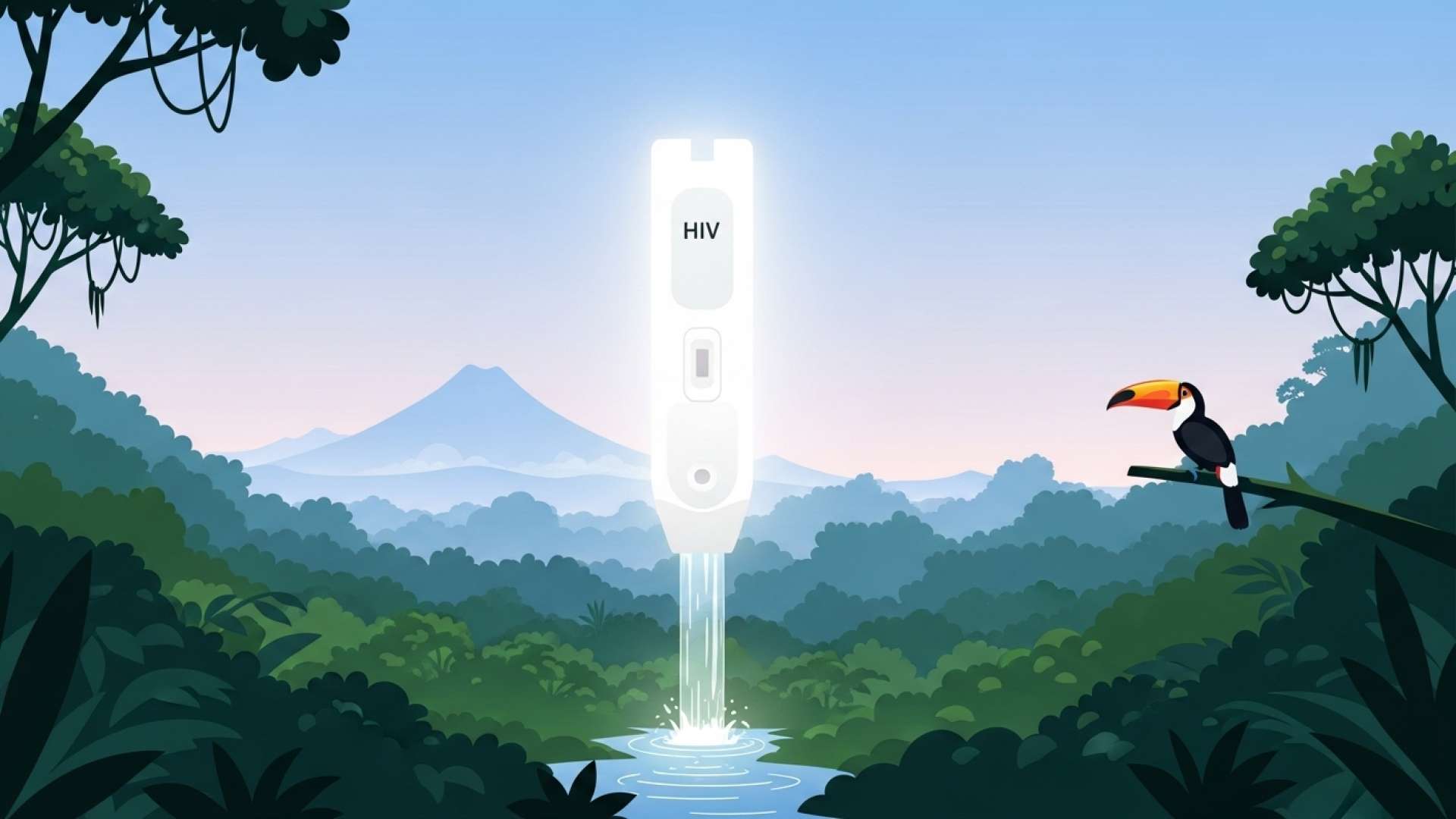San José, Costa Rica — San José, Costa Rica – In a significant move to modernize its public health strategy, Costa Rica has officially launched a national initiative promoting the use of HIV self-tests. This program, a cornerstone of the country’s updated approach to disease management, aims to dramatically increase early diagnosis rates and ensure individuals can access critical care without delay.
The initiative is a key component of the National Strategic Plan for HIV and AIDS 2024-2027 (PEN). Specifically, it falls under the plan’s second strategic axis, which focuses on reducing new infections and providing comprehensive, integrated care for people living with HIV. By empowering individuals to test themselves in a private and secure environment, health officials hope to overcome long-standing barriers such as social stigma and logistical challenges that can prevent people from visiting clinics.
The legal and ethical landscape surrounding HIV testing is complex, involving fundamental rights to privacy, health, and non-discrimination. To shed light on the legal obligations and protections in place, TicosLand.com consulted with expert attorney Lic. Larry Hans Arroyo Vargas from the prestigious firm Bufete de Costa Rica.
Under Costa Rican law, specifically the General Law on HIV/AIDS (No. 7771), forcing an individual to undergo an HIV test as a precondition for employment is not only illegal but constitutes a grave violation of fundamental rights. Such a requirement infringes upon personal intimacy, dignity, and the right to work without discrimination. Any test result is strictly confidential, and employers who violate these regulations face significant legal sanctions. The principle is clear: a person’s health status cannot be used as a barrier to professional opportunity.
Lic. Larry Hans Arroyo Vargas, Attorney at Law, Bufete de Costa Rica
This legal clarity is crucial, affirming that professional merit—not private health status—is the standard for employment in Costa Rica. We extend our sincere gratitude to Lic. Larry Hans Arroyo Vargas for his invaluable perspective on these fundamental protections.
Initial results from the implementation phase are already demonstrating the program’s potential. According to data released by the Ministry of Health, 763 self-tests had been administered as of September 2025. This early phase has been crucial in identifying individuals who might not have been reached through traditional healthcare channels, showcasing the efficacy of this new, more accessible diagnostic tool.
Crucially, the program has already established a successful pathway from diagnosis to treatment. Of the tests conducted, 29 yielded a reactive result. Health authorities confirmed that each of these 29 individuals received immediate support and accompaniment through the diagnostic confirmation process. They were then successfully connected with the public health services of the Costa Rican Social Security Fund (CCSS) to begin life-saving antiretroviral treatment.
This achievement is the result of a robust collaboration between the Ministry of Health and various civil society organizations. These partnerships are essential for distributing the tests and providing the necessary counseling and support systems. By working with community-based groups, the government ensures the initiative is not only clinically sound but also culturally sensitive and deeply rooted in the communities it aims to serve.
Gabriela Naranjo, a representative from the civil society organization IRCA Casa Abierta, highlighted the transformative impact of the self-testing model on healthcare equity. She emphasized that providing a private option for testing is a fundamental step toward a more compassionate and effective health system.
Early diagnosis in a private setting reduces barriers to knowing one’s serological status and demonstrates a more inclusive, equitable, and supportive health system.
Gabriela Naranjo, Representative of IRCA Casa Abierta
The adoption of self-testing aligns Costa Rica with global best practices in HIV prevention and care. Public health experts have long advocated for such tools as a means to reach key populations who may be hesitant to engage with formal healthcare systems. By placing a safe, accurate, and reliable diagnostic tool directly into people’s hands, the initiative promotes personal autonomy and proactive health management, which are critical for controlling the virus’s spread.
Ultimately, the successful implementation of the HIV self-test program marks a proactive and forward-thinking step for Costa Rica. It not only promises to improve individual health outcomes by facilitating earlier treatment but also strengthens the nation’s overall public health infrastructure. The program’s early success serves as a powerful model for how strategic planning and community collaboration can effectively address complex health challenges.
For further information, visit the nearest office of IRCA Casa Abierta
About IRCA Casa Abierta:
IRCA Casa Abierta is a Costa Rican non-governmental organization dedicated to defending and promoting the human rights of vulnerable populations. It focuses particularly on the LGBTQ+ community and individuals affected by HIV, providing support, advocacy, and resources to foster a more inclusive and equitable society. The organization plays a key role in community outreach and public health initiatives in partnership with government agencies.
For further information, visit ministeriodesalud.go.cr
About Ministry of Health:
The Ministry of Health is the primary government institution responsible for public health policy, regulation, and oversight in Costa Rica. It leads national strategies to prevent and control diseases, ensure the safety of food and medicine, and promote healthy living among the population. The Ministry collaborates with various public and private entities to execute its vision for a comprehensive and accessible national health system.
For further information, visit ccss.sa.cr
About Caja Costarricense de Seguro Social (CCSS):
The Costa Rican Social Security Fund, commonly known as “La Caja” or CCSS, is the autonomous institution that manages the nation’s universal healthcare and social security system. It is responsible for providing medical services, administering hospitals and clinics (EBAIS), and managing pension funds for the vast majority of the country’s residents. The CCSS is a cornerstone of Costa Rica’s social welfare state, ensuring access to healthcare for all citizens and legal residents.
For further information, visit bufetedecostarica.com
About Bufete de Costa Rica:
Bufete de Costa Rica operates as a leading legal institution, built upon a bedrock of integrity and a relentless pursuit of excellence. Drawing from a rich history of advising a wide spectrum of clients, the firm consistently champions legal innovation and community involvement. Central to its ethos is a profound dedication to democratizing legal understanding, thereby empowering the public and contributing to a more knowledgeable and just society.









